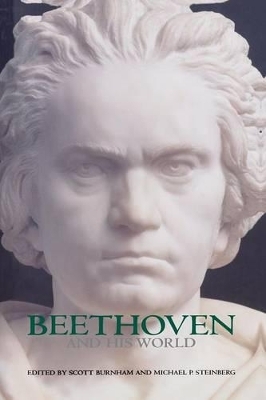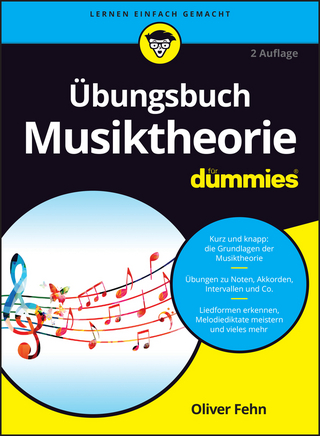
Beethoven and His World
Princeton University Press (Verlag)
978-0-691-07073-5 (ISBN)
Few composers even begin to approach Beethoven's pervasive presence in modern Western culture, from the concert hall to the comic strip. Edited by a cultural historian and a music theorist, Beethoven and His World gathers eminent scholars from several disciplines who collectively speak to the range of Beethoven's importance and of our perennial fascination with him. The contributors address Beethoven's musical works and their cultural contexts. Reinhold Brinkmann explores the post-revolutionary context of Beethoven's "Eroica" Symphony, while Lewis Lockwood establishes a typology of heroism in works like Fidelio. Elaine Sisman, Nicholas Marston, and Glenn Stanley discuss issues of temporality, memory, and voice in works at the threshold of Beethoven's late style, such as An die Ferne Geliebte, the Cello Sonata op. 102, no. 1, and the somewhat later Piano Sonata op. 109. Peering behind the scenes into Beethoven's workshop, Tilman Skowroneck explains how the young Beethoven chose his pianos, and William Kinderman shows Beethoven in the process of sketching and revising his compositions.
The volume concludes with four essays engaging the broader question of reception of Beethoven's impact on his world and ours. Christopher Gibbs' study of Beethoven's funeral and its aftermath features documentary material appearing in English for the first time; art historian Alessandra Comini offers an illustrated discussion of Beethoven's ubiquitous and iconic frown; Sanna Pederson takes up the theme of masculinity in critical representations of Beethoven; and Leon Botstein examines the aesthetics and politics of hearing extramusical narratives and plots in Beethoven's music. Bringing together varied and fresh approaches to the West's most celebrated composer, this collection of essays provides music lovers with an enriched understanding of Beethoven--as man, musician, and phenomenon.
Scott Burnham is Professor of Music at Princeton University and the author of Beethoven Hero(Princeton). Michael P. Steinberg is Professor of History at Cornell University and associate editor of The Music Quarterly. He is the author of The Meaning of the Salzburg Festival.
Preface and Acknowledgments by Scott Burnham and Michael P. Steinberg VIl PART I HEROIC BEETHOVEN In the Time(s) of the "Eroica"by Reinhold Brinlmann Translated by Irene Zedlacher 1 Beethoven, Florestan, and the Varieties of Heroism by Lewis Lockwood 27 PART II LATE BEETHOVEN Memory and Invention at the Threshold of Beethoven's Late Style by Elaine Sisman 51 Voices and Their Rhythms in the First Movement of Beethoven's Piano Sonata Op. 109: Some Thoughts on the Performance and Analysis of a Late-Style Work by Glenn Stanley 88 Voicing Beethoven's Distant Beloved by Nicholas Marston 124 PART III BEETHOVEN IN THE WORKSHOP Keyboard Instruments of the Young Beethoven by Tilman Skowroneck 151 Contrast and Continuity in Beethoven's Creative Process by William Kinderman 193 PART IV BEETHOVEN IN THE WORLD Performances of Grief: Vienna's Response to the Death of Beethoven by Christopher Gibbs 227 The Visual Beethoven: Whence, Why, and Whither the Scowl? by Alessandra Comini 286 Beethoven and Masculinity by Sanna Pederson 313 The Search for Meaning in Beethoven: Popularity, Intimacy, and Politics in Historical Perspective by Leon Botstein 332 Index x Notes on Contributors x
| Erscheint lt. Verlag | 27.8.2000 |
|---|---|
| Reihe/Serie | The Bard Music Festival |
| Verlagsort | New Jersey |
| Sprache | englisch |
| Maße | 152 x 229 mm |
| Gewicht | 595 g |
| Themenwelt | Kunst / Musik / Theater ► Musik |
| ISBN-10 | 0-691-07073-3 / 0691070733 |
| ISBN-13 | 978-0-691-07073-5 / 9780691070735 |
| Zustand | Neuware |
| Haben Sie eine Frage zum Produkt? |
aus dem Bereich


